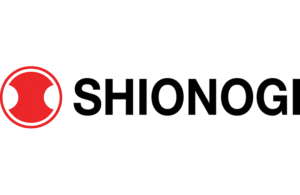 The investigational antiviral ensitrelvir promises to accelerate recovery from mild to moderate COVID-19.
The investigational antiviral ensitrelvir promises to accelerate recovery from mild to moderate COVID-19.
Investigators concluded that patients who received the investigational drug recovered from COVID-19 symptoms about 24 hours earlier than those in the control group. Additionally, participants in the ensiltrelvir group tested negative for SARS-CoV-2 about 29 hours earlier.
The drug, developed by Shionogi (TYO:4507), also promises to accelerate recovery from long COVID. However, some researchers stress that more data are needed to substantiate that claim.
Dr. Eric Topol, director of the Scripps Research Translational Institute in San Diego, told Nature that it is unclear whether Shionogi defined long COVID before the Phase 2/3 study began. Because Shionogi established the long COVID focus in the study’s exploratory phase, it is impossible to draw firm conclusions, Topol noted.
Two antivirals, Paxlovid (nirmatrelvir/ritonavir) and molnupiravir, are already available to treat COVID-19. Both antivirals, however, are limited to patients at high risk of severe disease. Shionogi investigated ensitrelvir in people regardless of their risk.
Shionogi and Hokkaido University jointly discovered ensitrelvir. The Phase 2/3 study recruited approximately 1,200 participants.
Investigators asked a subset of participants about their COVID-19 symptoms three and six months after trial enrollment. Shionogi concluded that participants had long COVID if they had two or more of the same symptoms at least twice in a row over this period.
Using that standard, they concluded that ensitrelvir recipients had a lower risk of developing long COVID than the placebo group.
Pfizer (Nasdaq:PFE) is currently running a Phase 2/3 study that could inspire the company to study whether Paxlovid is effective against long COVID.
There are, however, multiple, potentially overlapping causes of long COVID, including inflammation, viral reservoirs and autoimmunity. If that proves true, it may be difficult for a single treatment to help all patients with the condition.
Shionogi found that ensitrelvir was well-tolerated in its Phase 2/3 study. In addition, the company reported no serious adverse events or deaths related to treatment. The most common treatment-related adverse events were acute reductions in high-density lipoprotein (HDL) and elevated blood triglyceride levels.
Japanese regulators approved ensitrelvir under an emergency use program in November 2022 under the name Xocova.
Additional regulatory decisions are forthcoming.